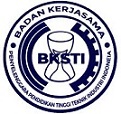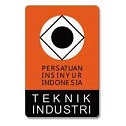The Impact of Online Learning Service Quality on Student Satisfaction During the COVID-19 Pandemic
Abstract
Online learning, also known as e-learning, has played a crucial role in enabling remote education, benefiting many institutions during the COVID-19 pandemic. However, student satisfaction is essential for effectively implementing and utilizing online learning platforms, particularly for institutions that have adopted or plan to adopt them. This study examines the quality of online learning services at Bells University of Technology during the COVID-19 lockdown and its impact on student satisfaction. Data were collected and analyzed using descriptive analysis and Partial Least Squares Structural Equation Modeling (PLS-SEM) to test the proposed hypotheses. The findings indicate that the quality of online learning services significantly influences student satisfaction—higher service quality leads to greater student satisfaction.
Keywords: Online Learning Service Quality, Student Satisfaction, Covid-19, Partial Least Squares Structural Equation Modeling (PLS-SEM).
.
Full Text:
PDFReferences
Akbar, M. M., and Parvez, N. (2009). Impact of service quality, trust, and customer satisfaction on customer loyalty. ABAC Journal, 29(1), 24-38. Retrieved from http://www.assumptionjournal.au.edu/index.php/abacjournal/article/view/526/472.
Al-Rahmi WM, Othman MS, Yusuf LM. (2015) Exploring the factors that affect student satisfaction through using e-learning in Malaysian higher education institutions. Mediterranean Journal of Social Sciences.;6(4):299.
Anderson, E. W., & Mital, V. (2000). Strengthening the satisfaction-profit chain. Journal of Service Research, 3(2), 107-120. doi:10.1177%2F109467050032001.
Chow WS, Shi S.(2014) Investigating students’ satisfaction and continuance intention toward e-learning: An Extension of the expectation confirmation model. Procedia-Social and Behavioral Sciences. 2014 Aug 25;141:1145-9.
Danylyshyn, B. (2020). The peculiarities of economic crisis due to COVID-19 pandemic in a developing country: A case of Ukraine. Problems and Perspectives in Management, 18(2), 13-22. doi:10.21511/ppm.18(2).2020.02
Dawadi S, Giri R, Simkhada P. Impact of COVID-19 on the Education Sector in Nepal: Challenges and Coping Strategies
Fen, Y. S., & Lian, K. M. (2005). Service quality and customer satisfaction: Antecedents of customer's repatronage intention. Sunway Academic Journal, 4, 59-73. Retrieved fromhttp://eprints.sunway.edu.my/46/1/service_quality.pdf
Felix Richter (2020), COVID-19's Staggering Impact on Global Education. Retrieved from: https://www.statista.com/chart/21224/learners-impacted-by-national-school-closures/ on 27th march 2022
Han H, Resch DS, Kovach RA. (2013) Educational technology in medical education. Teaching and Learning in Medicine;25(sup1):S39-43
Khawaja Fawad Latifa,*, Andrea Pérezb, Umar Farooq Sahibzada (2020) Corporate social responsibility (CSR) and customer loyalty in the hotel
industry: A cross-country study International Journal of Hospitality Management 89. https://doi.org/10.1016/j.ijhm.2020.102565
Liebef, J., Beckman, P.J., Hanson, M.J., Janko, S., Marquart, J.M., Horn, E. and Odom, S.L. (1997), “The impact of changing roles on relationships between professionals in inclusive programs for young children”, Early Education and Development, Vol. 8 No. 1, pp. 67-82, available at: https://doi.org/10.1207/s15566935eed0801_6
Puung, F. K., Fudholi, A., and Dharmmesta, B. S. (2014). Analisis pengaruh kualitas pelayanan pada kepuasan dan loyalitas pelanggan di salon dan spa. Jurnal Akbar, M. M., and Parvez, N. (2009). Impact of service quality, trust, and customer satisfaction on customer loyalty. ABAC Journal, 29(1), 24-38. Retrieved from http://www.assumptionjournal.au.edu/index.php/abacjournal/article/view/526/472
Al-Rahmi WM, Othman MS, Yusuf LM. (2015) Exploring the factors that affect student satisfaction through using e-learning in Malaysian higher education institutions. Mediterranean Journal of Social Sciences.;6(4):299.
Anderson, E. W., & Mital, V. (2000). Strengthening the satisfaction-profit chain. Journal of Service Research, 3(2), 107-120. doi:10.1177%2F109467050032001
Chow WS, Shi S.(2014) Investigating students’ satisfaction and continuance intention toward e-learning: An Extension of the expectation confirmation model. Procedia-Social and Behavioral Sciences. 2014 Aug 25;141:1145-9.
Danylyshyn, B. (2020). The peculiarities of economic crisis due to COVID-19 pandemic in a developing country: A case of Ukraine. Problems and Perspectives in Management, 18(2), 13-22. doi:10.21511/ppm.18(2).2020.02
Dawadi S, Giri R, Simkhada P. Impact of COVID-19 on the Education Sector in Nepal: Challenges and Coping Strategies
Fen, Y. S., & Lian, K. M. (2005). Service quality and customer satisfaction: Antecedents of customer's repatronage intention. Sunway Academic Journal, 4, 59-73. Retrieved from
http://eprints.sunway.edu.my/46/1/service_quality.pdf
Felix Richter (2020), COVID-19's Staggering Impact on Global Education. Retrieved from: https://www.statista.com/chart/21224/learners-impacted-by-national-school-closures/ on 27th march 2022
Han H, Resch DS, Kovach RA. (2013) Educational technology in medical education. Teaching and Learning in Medicine;25(sup1):S39-43
Khawaja Fawad Latifa,*, Andrea Pérezb, Umar Farooq Sahibzada (2020) Corporate social responsibility (CSR) and customer loyalty in the hotel
industry: A cross-country study International Journal of Hospitality Management 89. https://doi.org/10.1016/j.ijhm.2020.102565
Liebef, J., Beckman, P.J., Hanson, M.J., Janko, S., Marquart, J.M., Horn, E. and Odom, S.L. (1997), “The impact of changing roles on relationships between professionals in inclusive programs for young children”, Early Education and Development, Vol. 8 No. 1, pp. 67-82, available at: https://doi.org/10.1207/s15566935eed0801_6
Puung, F. K., Fudholi, A., and Dharmmesta, B. S. (2014). Analisis pengaruh kualitas pelayanan pada kepuasan dan loyalitas pelanggan di salon dan spa. Jurnal
Manajemen dan Pelayanan Farmasi, 4(2), 105-110.
Parasuraman, A., Zeithaml, V. A., and Berry, L. L. (1985). A conceptual model of service quality and its implications for future research. The Journal of Marketing, 49(4), 41-50. doi:10.1177/002224298504900403
Parasuraman, A., Zeithaml, V. A., and Berry, L. L. (1988). SERVQUAL: A multiple-item scale for measuring consumer perceptions of service quality. Journal of Retailing, 64(1), 12-40. Retrieved from https://www.researchgate.net/publication/200827786_SERVQUAL_A_Multipleitem_Scale_for_Measuring_Consumer_Perceptions_of_Service_Quality
Parasuraman, A., Zeithaml, V. A., & Malhotra, A. (2005). E-S-QUAL: A multiple-item scale for assessing electronic service quality. Journal of Service Research, 7(10), 1-21. doi:10.1177/1094670504271156
Pham, L., Limbu, Y. B., Bui, T. K., Nguyen, H. T., & Pham, H. T. (2019). Does e-learning service quality influence e-learning student satisfaction and loyalty? International Journal of Educational Technology in Higher Education, 16(7). doi:10.1186/s41239-019-0136-3
Rahamat RA, Shah PM, Din RO, Puteh SN, Aziz JA, Norman HE, Embi MA. (2012). Measuring learners’ perceived satisfaction towards e-learning material and environment. WSEAS Transactions on Advances in Engineering Education. ;9(3):72-83.
Reynolds, J., Caley, L. and Mason, R. (2002), How do People Learn?, McGraw-Hill Education, available at: www.amazon.co.uk/How-People-Learn-Jake Reynolds/dp/0852929560
Ringle, Christian M., Wende, Sven, and Becker, Jan-Michael. (2015). SmartPLS 3. Boenningstedt: SmartPLS. Retrieved from https://www.smartpls.com
Tijptono, F., and Chandra, G. (2016). Service, Quality, dan Satisfaction (4 ed.). Yogyakarta: Penerbit ANDI
Tj and Tanuraharjo (2020), The Effect Of Online Learning Service Quality On Student Satisfaction During COVID19 Pandemic In 2020. Jurnal Manajemen Indonesia Vol. 20(3), pp. 240-251.
UNESCO (2020). COVID-19 Educational Disruption and Response. Retrieved from: https://en.unesco.org/covid19/educationresponse
World Health Organization. (2020). Fact Check: COVID-19 is not airborne. Retrieved April 23, 2020, from https://www.instagram.com/p/BUieTUD42A/?utm_source=ig_embed
DOI: http://dx.doi.org/10.24014/jti.v11i1.16782
Refbacks
- There are currently no refbacks.
Copyright (c) 2025 Olufemi A. OROYE

This work is licensed under a Creative Commons Attribution-NonCommercial-ShareAlike 4.0 International License.
Jurnal Teknik Industri
P-ISSN 2460-898X | E-ISSN 2714-6235
Published by:
Industrial Engineering Department
Universitas Islam Negeri Sultan Syarif Kasim Riau, Indonesia
Office Address:
H.R. Soebrantas KM 15.5, Tampan, Pekanbaru, Riau, Indonesia 28293
email: jti.fst@uin-suska.ac.id
Indexed by:
JTI : Jurnal Teknik Industri under a Creative Commons Attribution-NonCommercial-ShareAlike 4.0 International License.

















